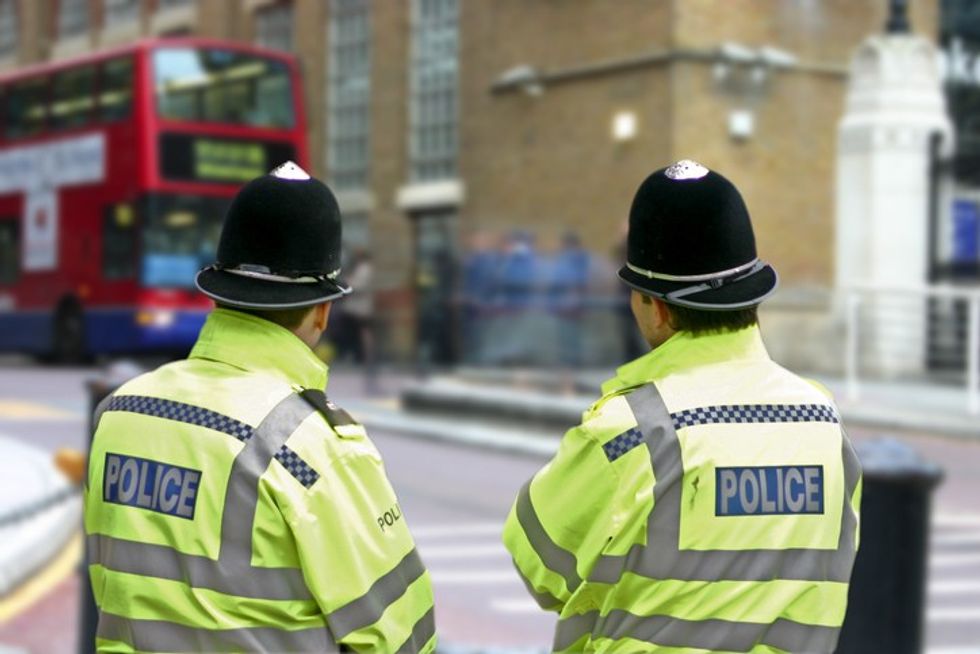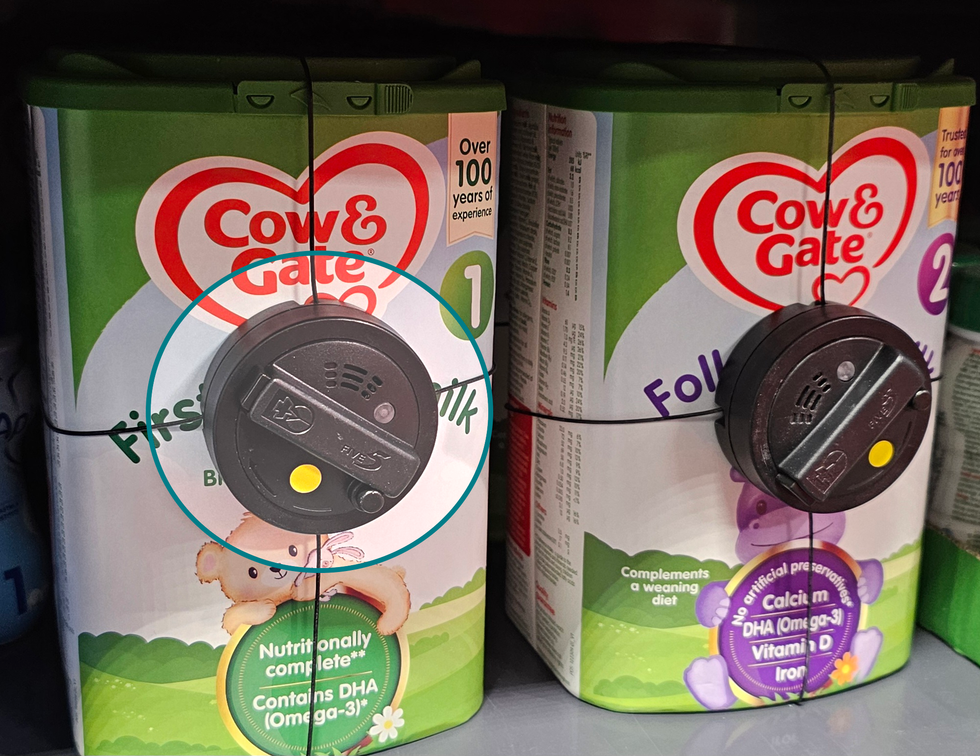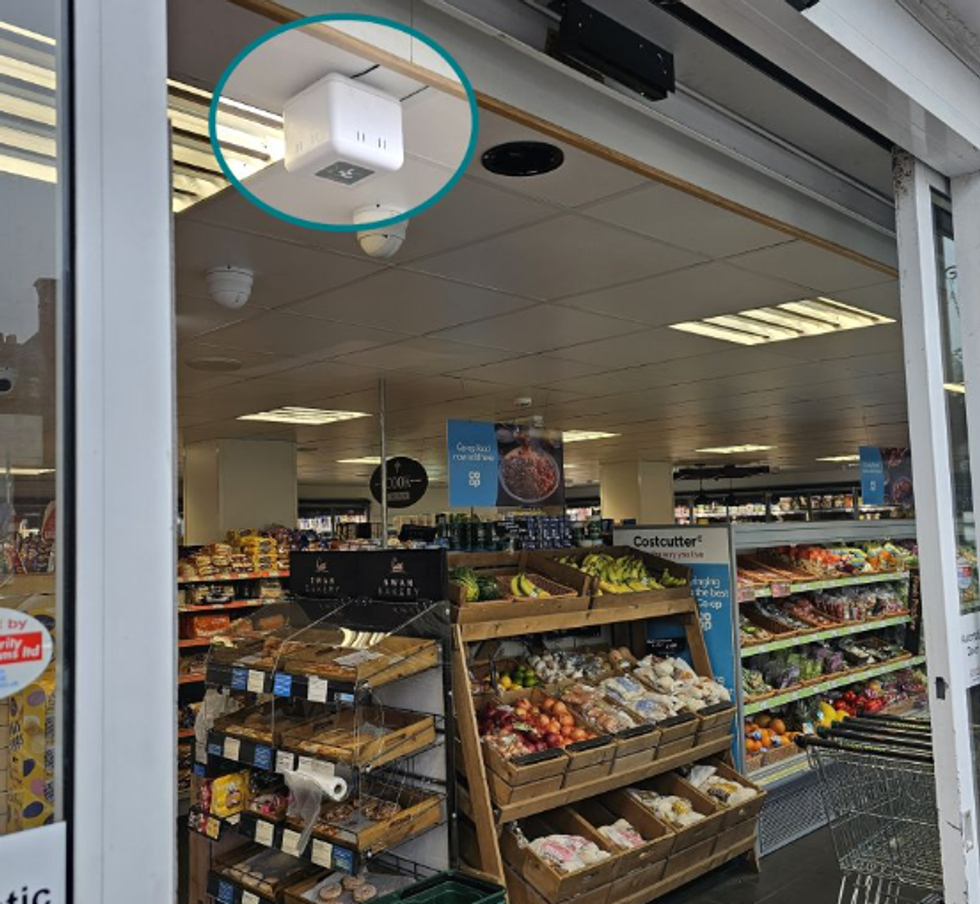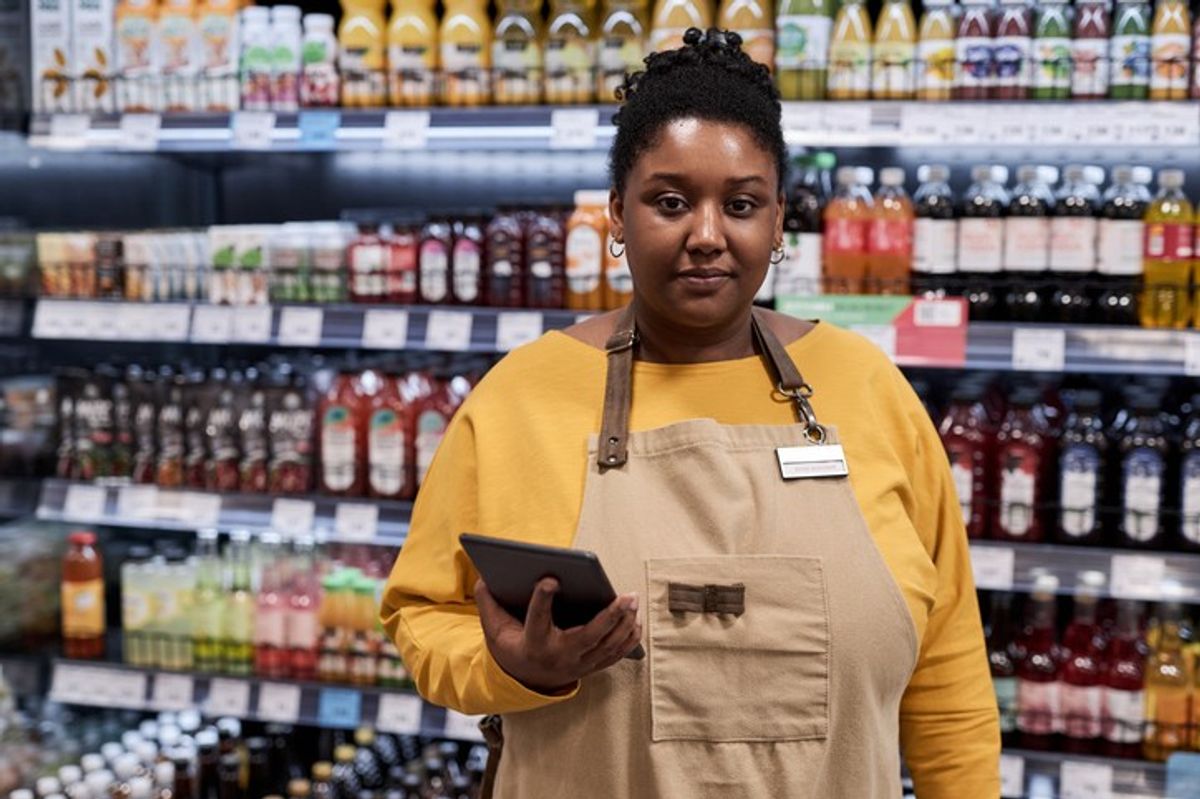Feeling abandoned by police and local authorities, UK independent retailers are determined to safeguard their businesses even if they risk getting in the way of law, Asian Trader has found.
Recently, a SPAR retailer in Wiltshire pledged to continue using social media to name and shame alleged shoplifters, despite this approach falling into a legal grey area.
Susan Connolly, the director of Connolly SPAR, an award-winning retail business with four SPAR stores in Wiltshire, has been using Facebook to post CCTV images of people stealing from her stores.
She said, “Stealing and shoplifting are on the rise at the moment. I decided to take images from CCTV of them in the act and make a nice little post on Facebook to send a strong message out there that we are watching, and we will catch you.
“Normally community identifies and shares the name of the offender but in last five cases, offenders have come back and paid in full. I accepted payment and removed the post.
“I know there must be guidelines of posting someone’s image on social media, but it works for me. As soon as they come in and pay, I do take the post down. In last five cases, which also included a very abusive lady in her 30s, I got my money back,” she said.
Speaking to Asian Trader, Connolly vowed that she won’t be stopping this practice soon as shoplifting has gotten out of hand in her area and police are not paying much attention to smaller, singular cases, even though they are draining the business as well as the mental health of everyone involved in the store.
Connolly said she will continue posting pictures of offenders on Facebook even if she runs the risk of prosecution.

Frozen food supermarket Iceland boss Richard Walker seems to agree with Connolly. He recently stated that he is ready to “take the rap” of the law but he will continue to post images of individuals caught stealing on local WhatsApp groups.
Walker stated in a podcast recently, “We are fighting with one hand tied behind our backs. When these images are on your CCTV, it’s absolutely proven. There’s no denying. Obviously you’d like to absolutely share those images. I’ve told my colleagues to do it anyway and I take the rap if there’s a problem.”
Data protection law enables retailers to share criminal offence data such as images to prevent or detect crime as long as it's “necessary and proportionate”.
So, what is necessary and proportionate?
According to body that oversees Britain’s data protection laws Information Commissioner’s Office (ICO), information should only be made available to a limited number of people who need it to prevent and detect crimes such as shoplifting.
What is considered “may not be appropriate” by ICO is putting images in a staff room, local businesses sharing images between one another via a messaging platform, publishing the information on a social media group open to any members of the public from the local area and putting images in the local area, such as shop windows and lampposts.
Melissa Mathieson, the ICO's Director of Regulatory Policy Projects, states, “If neighbouring retailers want to share images between one another, they should consider putting an agreement in place where they all agree to use only secure work devices and activate auto delete settings. Without this, images could end up in personal phones and uploaded to personal cloud backups.”
Calling the law “stupid”, frozen chain boss has called on the government to make changes to allow images and videos of shoplifters to be shared in an attempt to create a sense of repercussion in the minds of offenders.
Labour did introduce some changes recently but those do not seem to fit the bill. The government recently decided to axe an “immediate justice” scheme which saw shoplifters forced to do unpaid work in their community such as cleaning up graffiti, weeding and working in charity shops.

The immediate justice scheme was on trial in ten police force areas after it was announced as part of Rishi Sunak’s antisocial behaviour action plan last year. The Home Office was set to roll out funding for the remaining 33 police forces in England and Wales to introduce their own immediate justice schemes, with each receiving about £1 million from October.
However, the Home Office cancelled the scheme after concluding it did not offer “offer value for taxpayer money”. Labour’s move was however being questioned by policing leaders saying that immediate justice pilot that ran in the county was helping cut the reoffending rate among participants.
Wiltshire SPAR retailer Connolly also slammed the government’s move of axing the community sentencing of shoplifters.
She said, “I feel retail crime and abuse of shop workers are not being addressed properly. There are lots of talks about it but no concrete actions. It’s absolutely wrong.”
Seeing the latest crime figures, Connolly just might be right.
Touching a 20-year high record, a total of 443,995 shoplifting offences were logged by forces in the year to March 2024, which is up by 30 per cent on the 342,428 recorded in the previous 12 months.
The Co-op alone recorded 330,000 incidents of shoplifting, abuse, violence and antisocial behaviour in its 2,500+ stores across the UK in 2023, a 44 per cent spike on the year before.
What is noteworthy here is all these figures represent are just the tip of the iceberg as discouraged by police response, local shops do not report every incident. Police anyway do not take these incidents seriously.
While wooing the voters, Labour had pledged to remove the threshold of £200 to crack down on shoplifting. However, it is yet to make any official announcement on that matter.
Tech Friends
Where the police and government seem to be failing, technology is increasingly proving to be a savior.
Going beyond CCTV cameras and headsets, retailers are now seen adapting more complex systems to save their businesses and plug in the theft loss.
Premier store owner in Peterborough Neil Godhania vouches for Chirp Protect and recommends other businesses to give it a try.

Godhania said, “Initially, we faced recurring issues with shoplifting, particularly high value items like detergents, deodorants, meat, and cheese. Despite CCTV coverage, blind spots remained a challenge, especially with thefts of deodorant cans. Determined to address this, we turned to Chirp-protect, and the results have been outstanding.
“Since implementing the system, it has not only served as a strong deterrent but also provided real time visibility and alerts when theft occurs. This has significantly aided our staff and minimised financial losses. While we understand that eliminating shoplifting entirely is improbable, Chirp Protect has undeniably reduced its impact on staff, time, and profit loss.”
Chirp Protect is easy to install with just a hub above the door, a deactivator behind the counter and a range of tags to place on products.
Michelle Miles from Chirp Protect told Asian Trader, “Our alarm lets the staff know that someone is approaching the exit with an item that has not been paid for. Alarm also gets activated if somebody tampers with the tag on the shop floor.”
“We know in convenience the top five things going missing are steak, cheese, coffee, baby powder and detergents. The system is great for those stores that do not have the EAS gate panels installed as our solution gives them protection for high value items on the shop floor.”

Chirp Protect has proven to be a great deterrent in “casual shoplifting” wherein regular shoppers try to sneak in something extra in their bags or pockets without paying for them. Also, when other shoppers in the store hear such an anti-theft alarm going off, it sends the message that the store is vigilant.
While Godhania trusts Chirp Protect, Fiona Malone of Tenby Stores and Post Office, is relying on x-hoppers to save her stock.
Malone said, “Since the introduction of x-hoppers, we’ve seen massive change here. Our staff now feels safer, and we’ve detected a significant reduction in shrinkage from £26,000 annually, which has been dramatically reduced.”
x-hoppers is a comprehensive, AI-powered communication solution designed to improve store operations, enhance security and elevate customer service. It integrates wireless headsets, smart call points and AI-driven features to provide frontline staff with real-time access to information and communication.
Ian Rowan, CEO of x-hoppers, explained, “Shrinkage due to theft is currently a staggering £1.8 billion problem (BRC crime survey 2024) and x-hoppers has designed a proprietary technology called AIVA to help combat it. AIVA integrates with existing camera systems and employs advanced gesture recognition technology to identify theft-related behaviour.
“Following detection, predefined rules within the system dictate the next steps, this could involve transmitting an alert to headsets worn by store personnel or playing a message over the store’s speaker system to heighten self-awareness, avoiding confrontations and enhancing staff safety. AIVA has proven to be highly effective, helping retailers reduce crime by up to 60 per cent.”
Chirp Protect and x-hoppers are just a few examples of some of the tech solutions which are providing some relief to retailers when it comes to theft and even violent situations. Other prominent name here are Facewatch, Vession, RETaiL AI Limited and StaffSafe.
Connolly’s Wiltshire store is also equipped with CCTV. She stated facial recognition is effective, though it is seen that after some point of time, if the person wants to steal, they won’t care if there’s a camera watching or not.
Rowan acknowledges Connolly’s concern that shoplifters are becoming bolder and indifferent to traditional deterrents.
He told Asian Trader, "With x-hoppers we close the loop between detection and prevention. If someone has stolen an item and got away from the store unchallenged, we can add their face to our facial recognition solution within x-hoppers so the next time they enter the store, they can be challenged.
“A message is instantly played into the headsets letting staff know someone who stole before has just entered the store.”
Clarion Call
The Justice and Home Affairs Committee recently conducted its second and third rounds of public hearings, specifically focusing on the issue of shoplifting, where they heard testimony from various stakeholders regarding the problem and potential solutions.
Moving away from earlier narrative, it is now being said that organised criminal gangs are the reason behind the recent rise in shoplifting and retail crime rather than cost of living crisis.
Giving evidence to the committee, Paul Gerrard, the public affairs director at the Co-op stated that the “44 per cent rise in retail crime” was mostly down to gangs stealing to order at scale, sometime emptying entire shelves of confectionery, spirits or meat section.
Speaking at the same committee, ACS chief executive James Lowman stated that the police are not doing “nearly enough” to investigate re-sellers of stolen goods and there isn’t much faith in the police among retailers.
Retailers indeed are facing a tough fight against theft, rising operational costs and the challenge of keeping both staff and customers happy.
While technology provides some relief, the burden of protection still falls heavily on retailers alone. No wonder, indies are stepping up to defend their businesses, even if it means gently pushing the boundaries of the law.



